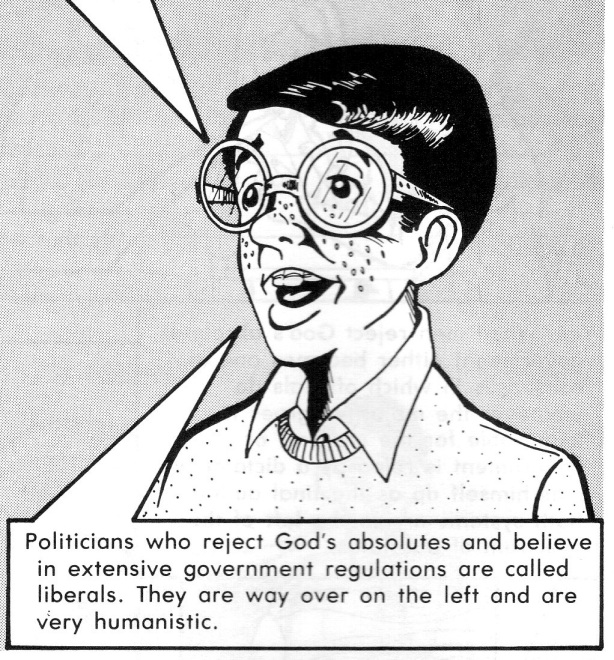Put in incredibly simple terms, hormonal birth control works thusly:
Step 1 : it prevents ovulation.
“Ovulation,” for the uninitiated, is when a mature egg is released from the ovary and become available for fertilization. “Prevents,” in this case, does not mean that the pill stops the egg from peaking its little head out of the ovary. It prevents because no egg develops to maturity. Simply put, there is no egg to come out of the ovary in the first place. This is one of the most important parts about hormonal birth control options, and something no one seems to pay attention to.
This is also the most important part for me. PCOS means that I get too many cysts developing at the same time, or they never stop developing, and I never experience a menstrual cycle. Ovarian cysts are normal– an ovarian cyst is where the egg matures. Hormonal birth control works to treat PCOS because it does not allow ovarian cysts to develop. An additional part of this process is that even if an ovarian cyst develops, there’s another chemical block in place that stops an egg from forming inside of it.
No ovarian cyst, no egg, nothing mature enough to be fertilized.
But, in the exceedingly rare case (if it wasn’t rare, it would be useless as a treatment for PCOS) where there is a cyst and an egg is developed, we move on to–
Step 2: eliminate the possibility of fertilization
This is pretty straightforward, and it comes in two steps. The progesterone in hormonal birth control options thickens the cervical mucus– makes it insanely more difficult for the sperm to reach the egg, which is already difficult– and it makes the egg harder to fertilize. So, even if a cyst develops, and if an egg develops inside of the cyst, and IF the sperm makes it up through the thickened mucus and all the way up the fallopian tube, when it reaches the egg, it’s going to have a hard time fertilizing it.
At this point in the process, the possibility of an egg being fertilized is so vanishingly small it’s not even really worth talking about, but I’m a-gonna, because it’s where the pro-life movement starts lying their little tooshies off.
“Supposed” Step 3: prevent implantation
At this point, the egg is a zygote, which is just the technical term for “fertilized egg.” For a lot of people this is where “conception” happens (which, problems), so this is where people start thinking that hormonal birth control is Just the Most Evil Thing those Evil Doctors have Ever Invented.
The most frequent term you’ll find in information about how this works is that the uterine wall is “hostile” for the egg. This is a misnomer. The uterine wall is exactly the same as it ever was, just thinner (hence, lighter periods). There’s no study that shows that the uterus becomes “hostile”– in fact, the scientific studies show that hormonal birth control options do not alter the uterine lining in any significant way except for making it slightly thinner, and are incapable of contributing to zygote failure (which I’ll explain).
This is the part where the pro-life movement lies. Because, at this point, they claim that this where the Pill murders babies. Literally starves them to death. Because it takes a baby (zygote), and then refuses it the opportunity to grow. It never grows, the woman’s body never receives the signal that she’s pregnant, and then the uterus expels the zygote and the uterine lining: therefore, MURDER.
Ok, folks, this is where I have All the Problems.
Let’s talk about the zygote, the supposed “great red herring” of the pro-choice movement.
The zygote is a single-celled organism, which through mitosis goes through stages (blastocyst, then embryo). Over fourteen days, it has to develop into an embryo, and the embryo has to develop the conceptus in order to attach to the uterine lining. The uterine lining, at this point, must transform from the decidua to the placenta.
Hormonal birth control methods are incapable of terminating a viable pregnancy. They are designed, in an unbelievable number of unnecessary steps, to prevent fertilization from ever occurring. Not by turning the uterus into a baby-killing machine. That’s patently false, and a bald-faced lie. If a woman’s body develops an egg, the uterine lining is unchanged. If there aren’t enough of the synthetic hormones present to prevent ovulation, there’s not enough of the hormones present to affect the uterine lining. If there’s no egg, then the uterine lining is thinner, possibly, and that’s the only real difference.
It’s a complete misunderstanding that in the case of supposed “breakthrough ovulation” that the uterine lining is still thinner. It’s not.
Here’s what the pro-life movement also refused to discuss:
All the medical studies I could scrounge up reveal that 60, 70, maybe 80% of all zygotes fail to implant on the uterine wall, when the woman is trying to conceive and is not on hormonal birth control.
Let me say that again: as many as 80% of all “babies” never implant in the uterus completely on their own.
For those that do manage to make it, another 30% don’t survive the first few weeks.
Let’s do the math again: 72% to 86% of all zygotes, which the pro-life movement refers to as babies, “die” without any outside interference whatsoever. When a woman is not on the Pill, zygotes fail.
When a woman is on the Pill, there’s rarely ever a zygote, and when there is one, it faces the exact same rate of zygote failure as a woman who isn’t on the Pill. The upside? When a woman is using hormonal birth control, there are less zygotes. Somewhere in the ballpark of 98% less zygotes.
Let me make this more clear: if zygote failure is “murder,” and hormonal birth control options drastically reduces the number of zygotes, the number of failed zygotes (i.e.: “murder”) is also drastically reduced.
Tell me again how the Pill is evil?
~~~~~~~~~~~~~~~~~~~
*Edit*
I wanted to include some information I have that might clarify my basic argument in this post: that hormonal birth control options don’t interfere with implantation. I’ve already made it clear that hormonal birth control doesn’t make the uterus as “hostile” place for the zygote, but I thought it might be helpful to explain why, biologically, this is so.
A menstrual cycle is just that: a cycle. It goes through three steps, or stages. The first is the follicular phase, where the uterine lining is thin. Thin, in the same sense that it is thin while a woman is on hormonal birth control. It is not capable of of allowing the conceptus to attach.
However, part of the ovulation phase is that ovulation releases a trigger for the uterus to begin the luteal phase, where the lining becomes thicker and the conceptus is able to attach.
If a woman on the Pill ovulates, this releases the hormonal trigger, and the uterine lining thickens because it enters the luteal phase. If she does not ovulate, the uterus does not receive the trigger, and the uterine lining remains exactly the same as it ever was.
You can read about this on wiki. Seriously.











